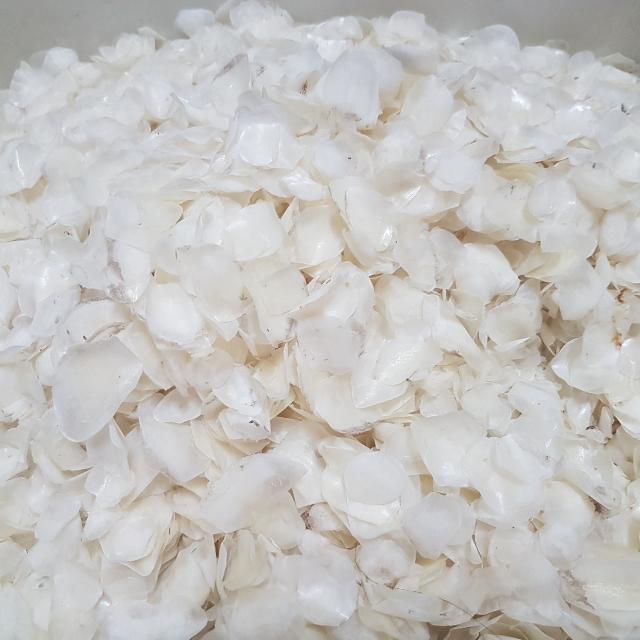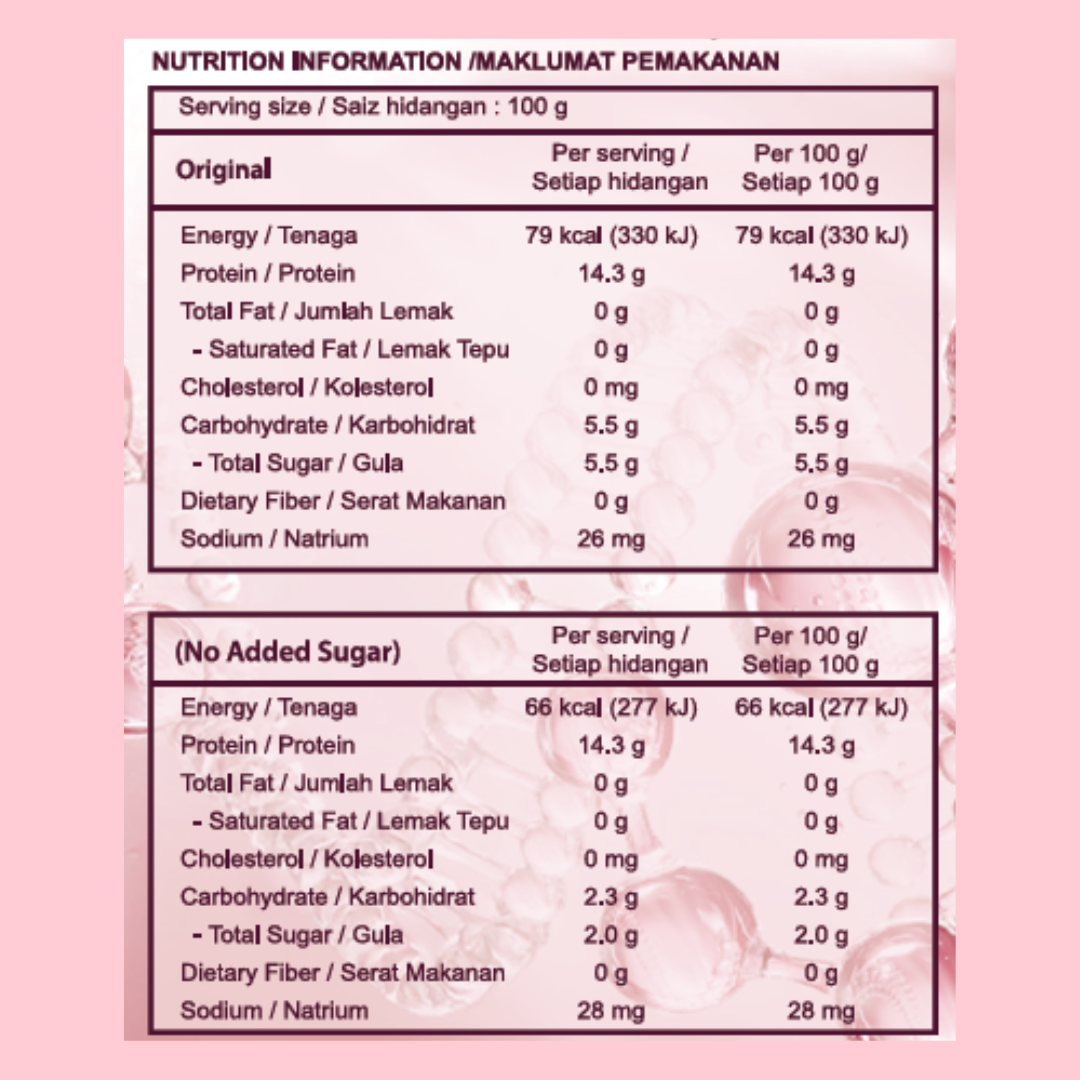
Why choose Fish Scale Collagen?
Share
Collagen derived from fish scales is described as having better absorption capacity compared to collagens from other sources. Here are the reasons why:
- Molecular weight:
- The molecular weight of the fish scale collagen peptides is rather lower (3000-5000 daltons) than other sources.
- Small molecules, particularly small peptides, increase the absorption capacity in the digestive tract.
- Amino acid profile:
- The fish collagen consist mainly of hydroxyproline and glycine and proline.
- That composition is close to that of human collagen and may be welcomed by the body.
- Absorption mechanisms:
- Collagen peptides are primarily absorbed in the small intestine.
- They can be absorbed intact through specific peptide transporters (like PEPT1).
- Some are further broken down into individual amino acids before absorption.
- Dipeptide advantage:
- Many fish collagen peptides contain proline-hydroxyproline (Pro-Hyp) dipeptides.
- These dipeptides have shown higher resistance to further breakdown and can be absorbed intact.
- Distribution in the body:
- Once absorbed, collagen peptides are distributed throughout the body via the bloodstream.
- Some studies suggest they can accumulate in specific tissues like skin and joints.
- Stimulation of collagen synthesis:
- Absorbed peptides may act as signals, stimulating fibroblasts to produce more collagen.
- This indirect effect could contribute to the overall benefits of collagen supplementation.
- Comparison to other sources:
- Studies have shown that fish collagen may be absorbed up to 1.5 times more efficiently than bovine or porcine collagen.
- Factors affecting bioavailability:
- The presence of vitamin C can enhance collagen absorption and utilization.
- Individual factors like age, gut health, and overall diet can also impact absorption.
- Time to peak blood levels:
- Fish collagen peptides typically reach peak levels in the bloodstream within 1-2 hours after ingestion.
- Sustained presence:
- Some studies suggest that collagen peptides can be detected in the blood for up to 14 hours after ingestion, indicating a prolonged effect.
It's important to note that while fish scale collagen shows promising bioavailability, individual responses can vary. More research is still needed to fully understand the long-term impacts and optimal dosing strategies for different health outcomes.













